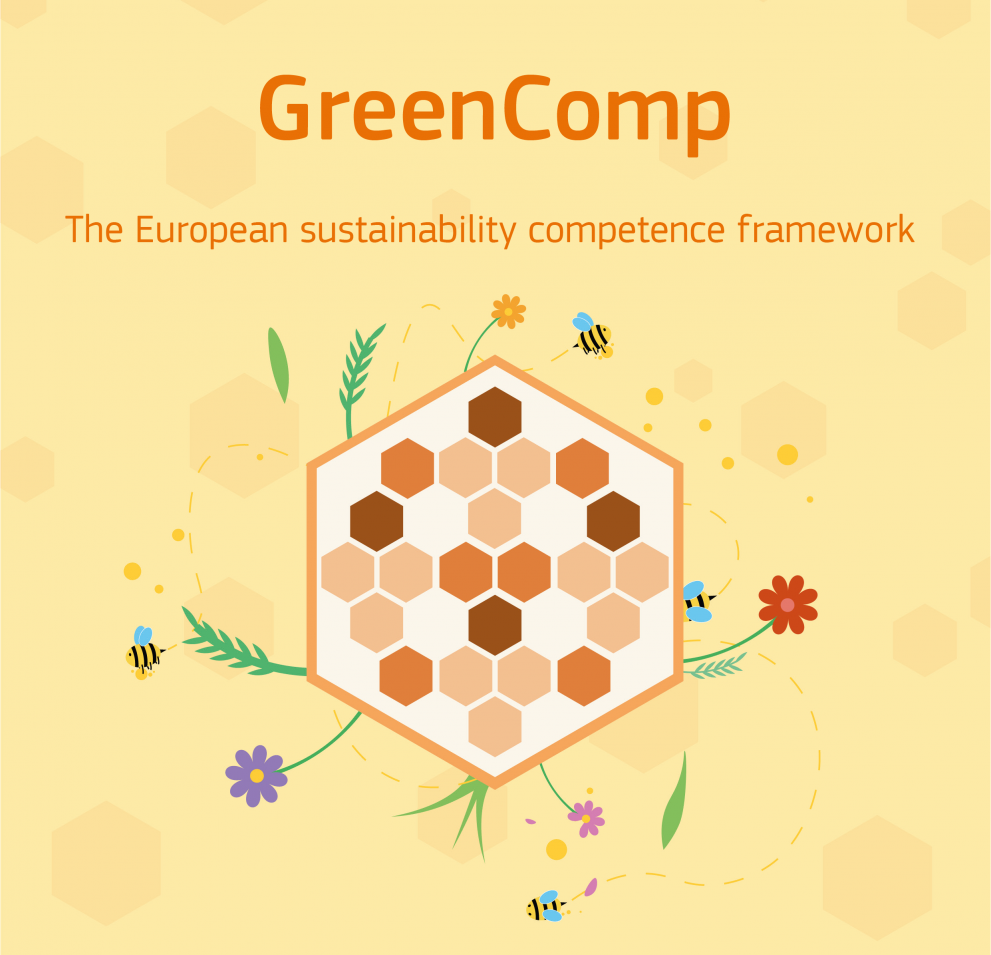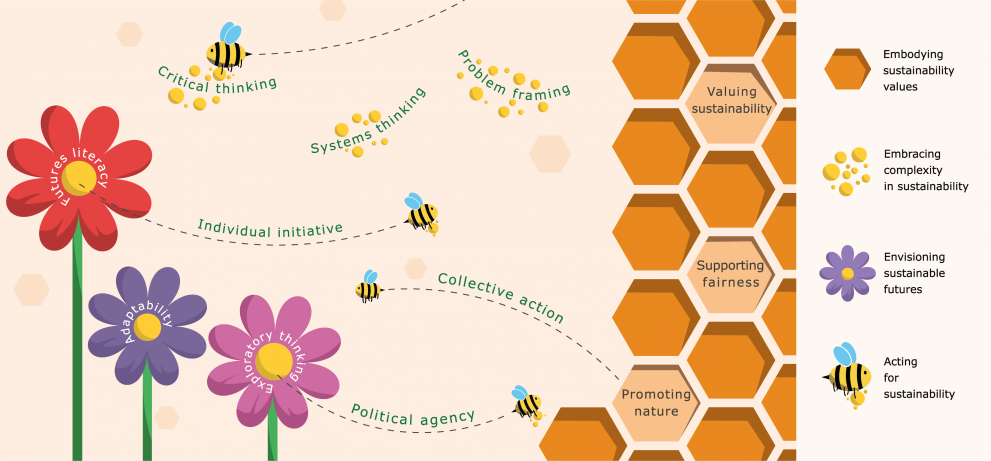GreenComp: the European sustainability competence framework
GreenComp is a reference framework for sustainability competences. It provides a common ground to learners and guidance to educators, advancing a consensual definition of what sustainability as a competence entails.

It responds to the growing need for people to improve and develop the knowledge, skills and attitudes to live, work and act in a sustainable manner. It is designed to support education and training programmes for lifelong learning. It is written for all learners, irrespective of their age and their education level and in any learning setting – formal, non-formal and informal.
Sustainability competences can help learners become systemic and critical thinkers, as well as develop agency, and form a knowledge basis for everyone who cares about our planet’s present and future state.
Policy background
GreenComp responds to the ambitions set out in the European Green Deal. Following this political direction, the Commission has published policy papers entitled European Skills Agenda for Sustainable Competitiveness, Social Fairness and Resilience (2020) and the European Education Area by 2025 (2020) underscoring the need to develop a European competence framework on sustainability. In these policy papers, the Commission explicitly recommends activating education and training by developing skills, including upskilling and reskilling, and by investing in learning for environmental sustainability.
The EU biodiversity strategy for 2030: ‘Bringing Nature Back into our Lives’ (2020) also highlights the important role that education and training have in enabling the EU to reach its goal to become a climate-neutral continent by 2050.
Methodology
The European sustainability competence framework is the result of consensus building based on a mixed method research process. This process has led to the gradual and progressive refinement of GreenComp and, ultimately, the consolidated framework set out in this report. To achieve this, a diverse group of approximately 75 experts and stakeholders was consulted at different stages to obtain their feedback and progressively reach a consensus.
The group included experts on sustainability education and lifelong learning from academia and research institutions, youth representatives, educators, policy representatives from EU Member States and NGOs.
GreenComp builds on previous work carried out by the JRC to define other key competence for lifelong learning, namely digital, entrepreneurship, personal, social and learning to learn competences.
GreenComp conceptual reference model

GreenComp consists of 12 competences organised into the four areas below:
Embodying sustainability values, including the competences
- Valuing sustainability: To reflect on personal values; identify and explain how values vary among people and over time, while critically evaluating how they align with sustainability values.
- Supporting fairness: To support equity and justice for current and future generations and learn from previous generations for sustainability.
- Promoting nature: To acknowledge that humans are part of nature; and to respect the needs and rights of other species and of nature itself in order to restore and regenerate healthy and resilient ecosystems.
Embracing complexity in sustainability, including the competences
- Systems thinking: To approach a sustainability problem from all sides; to consider time, space and context in order to understand how elements interact within and between systems.
- Critical thinking: To assess information and arguments, identify assumptions, challenge the status quo, and reflect on how personal, social and cultural backgrounds influence thinking and conclusions.
- Problem framing: To formulate current or potential challenges as a sustainability problem in terms of difficulty, people involved, time and geographical scope, in order to identify suitable approaches to anticipating and preventing problems, and to mitigating and adapting to already existing problems.
Envisioning sustainable futures, including the competences
- Futures literacy: To envision alternative sustainable futures by imagining and developing alternative scenarios and identifying the steps needed to achieve a preferred sustainable future
- Adaptability: To manage transitions and challenges in complex sustainability situations and make decisions related to the future in the face of uncertainty, ambiguity and risk
- Exploratory thinking: To adopt a relational way of thinking by exploring and linking different disciplines, using creativity and experimentation with novel ideas or methods
Acting for sustainability, including the competences
- Political agency: To navigate the political system, identify political responsibility and accountability for unsustainable behaviour, and demand effective policies for sustainability
- Collective action: To act for change in collaboration with others
- Individual initiative: To identify own potential for sustainability and to actively contribute to improving prospects for the community and the planet
Extra Information
- The four competence areas are tightly interrelated: sustainability as a competence encompasses all four taken together.
- The 12 sustainability competences are also interrelated and interconnected, and should be treated as parts of a whole.
- Learners do not need to acquire the highest level of proficiency in all 12, nor have the same proficiency across all of them. Indeed, GreenComp implies that sustainability as a competence is made of 12 building blocks.
Read the full report:
GreenComp. The European sustainability competence framework.
Original sources:
https://joint-research-centre.ec.europa.eu/greencomp-european-sustainability-competence-framework_en
